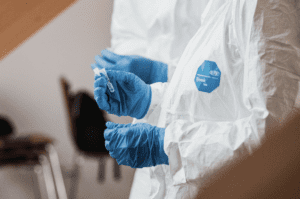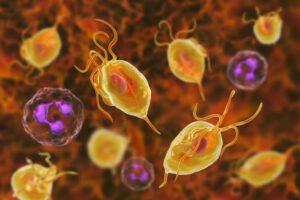Sexual Transmitted Disease (STD) is caused by viruses or bacteria that are spread from person to person by sexual activity. If you suspect an STD then you should carefully check and know about its symptoms. If your current sign or symptoms show that you have STD, go for treatment and tests. STD is a serious issue. But, if treated properly, you can overcome it.
Symptoms
- Ulcers on the skin of the genitalia
- Abdominal pain
- Fever
- Discharge from the penis or vagina
- Burning discomfort during urination
If you are facing all these problems then here is what you should do next.
Go for the following tests
- Blood test: blood tests confirm the diagnosis. It gives an accurate report whether you are diagnosed or not.
- Urine samples: urine tests determine whether the STD-causing bacteria are present in your urine. The urine sample is part of regular testing for STD.
- Fluid samples: the doctor may take the fluid samples if you have open genital sores. This will help to diagnose the type of infection.
Visit doctor
The Doctor will first confront you and question that how many sexual partners you had and if any of them were diagnosed with STD. Be honest with your doctor. They will examine your genital area and take samples of genital discharge. It will take the sample and send it to the laboratory for testing. Out of the above-mentioned tests, the doctor recommends different tests according to the symptoms. As soon as the reports come of the test, the doctor will start the treatment. The doctor will better take care of the disease and facilitate proper treatment.
Start and complete treatment
Sexually Transmitted diseases are easier to cure. You will have to complete the treatment prescribed by the doctor. Even if you feel better while the treatment is going on do not discontinue before completing it. Do as the doctor says. If you are diagnosed with a bacterial STD, it can be cured but if it is a viral STD then it can be managed but not cured.
Antibiotics are often used for bacterial STD. you will be treated for both gonorrhea and chlamydia at the same time because they both appear together. If you start taking the medications follow them till the end and if you can not then consult your doctor.
If you have a viral infection or HIV then you will be prescribed an antiviral drug. Antiviral drugs lower the risk and keep infections in check for many years. Though you still carry the disease and there is a chance of transmission of the disease.
Practice safer intercourse
If you are involved in a sexual relationship and you think you might have STD, it is your responsibility to protect both of yourselves from further infections. Having safer sex may not be foolproof but it reduces the risk of transmitting infections. Every disease is not transmitted every time you have sex with your partner. So it is better to practice safer sex.
Prevention
- Make sure to use protection while having sex. Using male latex condoms while sexual activity is a good option.
- No sex, no STD. avoiding sexual activities will keep you safe from the Sexual Transmitting Disease.
- Sexually indulging with only one person.
Conclusion
Sexual Transmitting Disease is a silent infection that can be passed between two sex partners without getting noticed. Call your doctor immediately if you find a sore in your genital area or found abnormal discharge from the urethra. If you found yourself diagnosed with STD then do reach out to your partner and make them aware so that they can also undergo testing and treatment. Always take preventive measures and medical attention.




